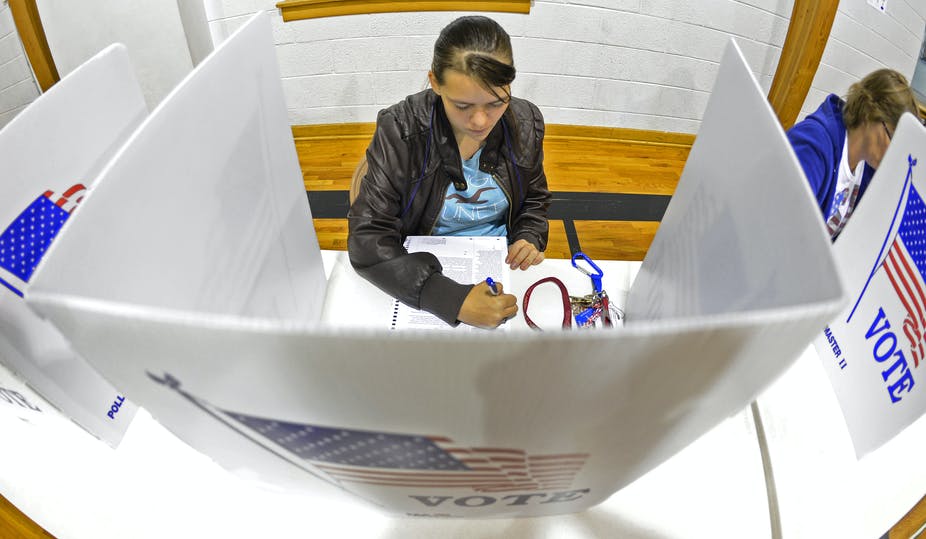Lee Jarvis explores the politics of terror in light of the decision to suspend electoral campaigning in the aftermath of the Manchester attacks.
As I write this brief piece, details about last night’s horrific events in Manchester are beginning to emerge. It appears that the attack was
conducted by a lone individual, who entered the foyer of the Manchester Arena, detonated an improvised explosive device, and in so doing killed – at the current count – 22 people, injuring a further 59. The response to the attack has so far been relatively measured, with the Greater Manchester police releasing relevant information, community leaders appealing for calm, and considerable displays of public generosity with stories of Manchester’s residents offering accommodation, transportation, water and more to those caught up in those attacks.
One other very visible response to these killings has been a decision to suspend campaigning for the forthcoming British general election by the leaders of the United Kingdom’s major political parties. This decision is important, I think, because it confers further significance on yesterday’s attacks, especially when read in conjunction with – amongst other things – the release of supportive messages by esteemed political figures from around the world. In so doing, this suspension, I suggest, feeds into an increasingly established understanding of terrorism as an exceptional phenomenon that serves as a radical interruption of the predictable, mundane, normality of everyday politics-as-usual.
Last night’s attacks will, of course, have been experienced in precisely that way by all of those families caught up in the blast: and it is incredibly difficult for those of us outside the events to appreciate the impact they will have had. But I wonder whether this sense of exceptionality offers a helpful way of thinking about a type of violence that is familiar to anyone who consumes the news media; albeit one that is still, thankfully, rare in countries such as the United Kingdom. A type of violence, moreover, that might be no more devastating to its victims and survivors than other forms of violence which might lack terrorism’s sense of spectacular unpredictability. (However difficult and unpalatable that may be to appreciate after tragic events such as last night’s).
This suspension of campaigning also – and I think equally importantly – positions terrorism as an extra-political phenomenon: one that is external to the ‘normal’ (liberal, democratic) political process. Politics has stopped – politics has to stop – the argument seems to go, because we have witnessed something even more important than a general election campaign. Politics matters, of course, but politics can wait in the wake of events such as this which throw up far more immediate concerns of life and death.
Conceptualising terrorism in this way is, I think, misleading because doing so overlooks some of the very real, and very important, ways in which terrorism and the political are imbricated, even inseparable, some of which I try briefly to sketch now.
First, and most obviously we are already witnessing an immediate response to the attacks from the state itself, including a meeting of the government’s emergency COBRA committee, and a subsequent statement from the Prime Minister. The counter-terrorism response that will now follow is one funded by the state, organised around national strategies that have been written by functionaries of the state (elected or otherwise), and peopled by representatives of the state from emergency responders and police forces through to parliamentarians, mayors and less visible members of the political class. Politics – in a very narrow sense – is far from stationary, and a whole series of mechanisms will now kick in that are – in effect – political.
Second, we are also seeing – as we would expect – concerted efforts to make sense of the events, their perpetrators and their consequences: efforts, put otherwise, to represent or construct the attacks in particular ways. Such efforts are, again, intrinsically political, because they involve making choices about which words, labels and tropes to use, all of which will bring with them specific connotations and histories. The widespread return to notions of ‘barbarism’ by figures including the UK’s Home Secretary, the Leader of the Scottish National Party, and the Mayor of London in statements and social media output offers an obvious example of this: a framing with a long genealogy in international politics that confirms ‘our’ civilised superiority against ‘their’ pre-political lust for violence. The Prime Minister’s description of the attacks as ‘cowardice’ and the result of a ‘warped and twisted mind’, similarly, confirms the attacks’ – and their protagonists’ – immorality, if perhaps not as bluntly as the US President Trump’s chosen ‘evil losers in life’.
Third, although it is too soon to speculate on the attacks’ specific causes, they are unlikely to be entirely divorced from their surrounding political context. Depending on the protagonist, this might involve racist anxieties around British immigration policy, hostility toward UK foreign policy, or a sense of alienation from the organised political process; however ill-founded any of these hatreds might be. The attacks might spur from none of these things, or they might have multiple causes, but it is hard to imagine their complete detachment from any sort of political framework. Indeed, most conceptions of terrorism view this type of violence as one which is emphatically political – a criterion that is often invoked to distinguish it from others such as ‘ordinary’ crime.
Fourth, much of the above – as I have, in places, implied – also involves closing down alternative ways of thinking about, and responding to, the attacks: whether implicitly (where framings of barbarism and evil militate against explicitly political explanations for the attack) or explicitly (for instance, in appeals that publics refrain from speculation on their perpetrators).
The decision to suspend electioneering in the aftermath of these attacks may well be well-intentioned. None of the above should be taken as suggesting otherwise, much less as an effort to trivialise what will be a devastating experience for the attacks’ victims and relatives. But, that decision does seem to rely upon a quite particular understanding of terrorism as that which stands beyond politics as a set of institutions and procedures: of politics as that which goes on in (here, electing people to) Westminster. It also, moreover, relies on a specific understanding of politics as something like the search for consensus or unity – rather than politics as a space for
disagreement or debate. The need to suspend our differences to stay strong or united in the wake of awful events such as those in Manchester is a particularly common trope within counter-terrorism discourse and practice.
Politics, however, is not only about how we make decisions in our world as we encounter it. Politics is also about how we actively create the world around us through our language and actions – and how, in so doing, we decide (consciously or otherwise) not to create other worlds. It might be that the ongoing response to last night’s events in Manchester is appropriate. It might be the case that that response is excellent. But, whatever else we think of it – including the decision to suspend campaigning – that response is no more apolitical than the violence behind it.
Lee Jarvis, is a Reader at the University of East Anglia
Image Credit: West Midlands Police





